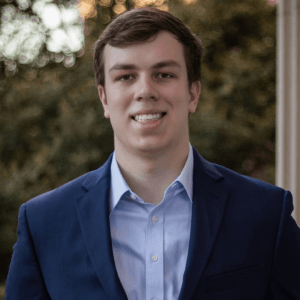Summer in the Hunt Institute is always an exciting season of transition and growth for our team. Though the summer team is typically smaller with many of our student workers participating in internships or taking summer classes, it was nonetheless encouraging to be able to engage in person with our coworkers after adjusting to a hybrid workspace for much of the last year. After we celebrated our graduating students in May, we changed gears to a summer of training new team members and strengthening our processes, delving deeper into existing projects, and continuing to engage with our community. This post serves to highlight some specific happenings in the Institute over this summer:
In June, Mohammed Njie shared a HunTalk about his journey to bring clean energy to The Gambia and the support of his colleagues in the Institute along the way.
Mohammed said that clean, reliable energy in The Gambia “is necessary now more than ever given the effects of climate change on agriculture, the country’s most important industry. This makes our venture a necessary and worthy cause.”
Also taking place in June was the final ImpactNights™ of the academic year, which was dedicated to “Freedom Day” with an expert-led look at the obstructions in our justice system that hinder economic freedom for a significant number of black and brown Americans. Read more about the event here and view the engaging conversation here.
The Social Enterprise Program in the Institute was a focus this summer, as the 2021 Cohort of Social Intrapreneurs continued developing their innovative solutions. Working to support the intrapreneurs is Valecia Harris, the graduate Program Consultant and Manager for the Social Enterprise Program.
Valecia noted that she is “excited to be part of a team where I can lend my knowledge and experience in developing strategies and supporting innovative solutions that generate transformational impact.”
Undergraduate student workers are involved in this area as well, as Undergraduate Research Analyst Scott Zuo was featured in July for his research involving inclusive economy best practices and mapping of the international ecosystem for social enterprise.
As mentioned previously, many student workers in the Hunt Institute received tremendous opportunities to acquire new skills and experiences through internships outside of the Institute. Undergraduate Marketer John Morgan reminded us to worry less and dream more after recounting his experience working with children as a program specialist at Lakeview Methodist Conference Center, and Undergraduate Research Analyst Sam Borton explained his summer research on non-revenue water at the Institute for Technology and Global Health. We are excited to reconnect with all of our student workers who worked elsewhere this summer to hear about their experiences.
Lastly, we highlight the exciting progress being made on STEM Up Phase II, in which using the solar power produced at Tintinto Primary and Secondary School in The Gambia, low-cost and low-power servers and refurbished laptops will outfit a computer lab. This project continues to progress as Wilkie Stevenson ’20 works tirelessly to finalize the prototype.
Be sure to stay up to date on these and the many other exciting projects and initiatives happening at the Hunt Institute this Fall. Pony Up!
To read more about the Hunt Institute’s work to develop future-focused solutions to some of the world’s biggest problems, please click here. For the latest news on the Hunt Institute, follow our social media accounts on LinkedIn, Facebook, and Instagram. We invite you to listen to our Podcast called Sages & Seekers. If you are considering engaging with the institute, you can donate, or sign-up for our newsletter by emailing huntinstitute@smu.edu.

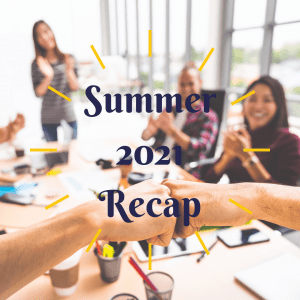






 On this episode of the Hunt Institute’s Sages & Seekers Podcast,
On this episode of the Hunt Institute’s Sages & Seekers Podcast,  On this episode of the Hunt Institute’s Sages & Seekers Podcast, Ana Rodriguez, Managing Director of the Latino Leadership Initiative in the Cox School of Business, discusses representation and diversity at SMU, the importance of mentorship, food security, self-care and grit.
On this episode of the Hunt Institute’s Sages & Seekers Podcast, Ana Rodriguez, Managing Director of the Latino Leadership Initiative in the Cox School of Business, discusses representation and diversity at SMU, the importance of mentorship, food security, self-care and grit.
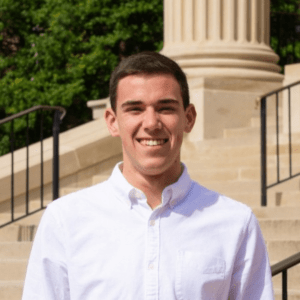
 On this episode of The Hunt Institute’s Sages & Seekers Podcast, Kamilah Collins shares the tools for discovering our social identities and explains how we can use that knowledge to better understand and collaborate with others.
On this episode of The Hunt Institute’s Sages & Seekers Podcast, Kamilah Collins shares the tools for discovering our social identities and explains how we can use that knowledge to better understand and collaborate with others.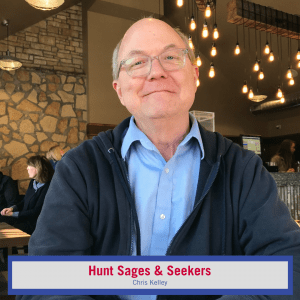 On this episode of The Hunt Institute’s Sages & Seekers Podcast, Chris Kelley discusses the Rwandan Genocide, its causes, how Rwanda has moved forward, and what we can all learn from this story. In the spring of 2019, Kelley published “Rwanda: 25 Years Later: A Primer on the 1994 Rwandan Genocide and What’s Happened Since Then.”
On this episode of The Hunt Institute’s Sages & Seekers Podcast, Chris Kelley discusses the Rwandan Genocide, its causes, how Rwanda has moved forward, and what we can all learn from this story. In the spring of 2019, Kelley published “Rwanda: 25 Years Later: A Primer on the 1994 Rwandan Genocide and What’s Happened Since Then.”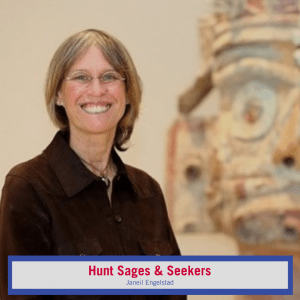 On this episode of The Hunt Institute’s Sages & Seekers Podcast, Janeil Engelstad discusses the power of collaboration, self-reflection, and gratitude.
On this episode of The Hunt Institute’s Sages & Seekers Podcast, Janeil Engelstad discusses the power of collaboration, self-reflection, and gratitude.